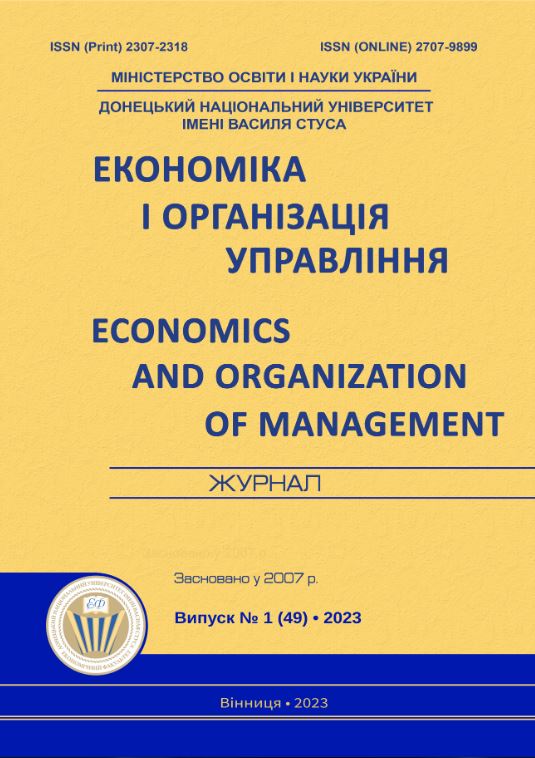Strategic directions for educational system improving based on workforce competitiveness increase
DOI:
https://doi.org/10.31558/2307-2318.2023.1.17Keywords:
competitiveness of the workforce; labor market; labor market regulation; strategic directions; education system; quality of education; reformsAbstract
In the article the strategic directions for improving the education system in the context of increasing the competitiveness of the workforce in the labor market is defined. The scientific and methodological principles for determining strategic directions for improving the education system in the context of increasing the competitiveness of the workforce in the labor market have been developed. An algorithm for determining strategic directions for improving the education system is proposed, which consists of the following stages: analysis of the state, trends, and features of the education system and its compliance with the needs of the labor market; identification of problems and determination of advantages of the current state of the education system; formation of a strategic vision and development priorities, tasks and measures to improve the education system; identification of subjects, methods and resource support for the development of strategic directions for improving the education system; development of a plan of measures for the implementation of strategic areas of improvement of the education system and other tools for their implementation; analysis of threats, opportunities and control over the implementation of strategic directions; monitoring, analysis and evaluation of the effectiveness of the implementation of strategic directions for improving the education system; determination of the effectiveness of the implementation of strategic directions and their adjustment in the event of the need to make changes.
References
Безтелесна Л. Механізми взаємодії роботодавців та вищих навчальних закладів в системі безперервної освіти. Нова педагогічна думка. 2013. № 1.2. С. 174-177.
Ільїч Л. М. Взаємодія ринків праці та освіти: сутність, характерні риси та модель функціонування. Економіка та держава. 2017. № 4. С. 69-74.
Ільїч Л. М., Кримова М.О. Світова практика взаємодії суб’єктів ринків праці та освіти у системі забезпечення продуктивної зайнятості молоді. Вісник Донецького національного університету. Серія В: економіка і право. 2014. Вип. 2. С. 39-42.
Кримова М. О. Оцінка конкурентоспроможності молодих фахівців з економічною освітою на ринку праці України. Демографія та соціальна економіка. 2015. № 2. С. 53-64.
Лісогор Л. С. Освітні чинники забезпечення інноваційного людського розвитку. Науковий вісник Полтавського університету споживчої кооперації України. 2008. №3 (30). С. 421-424.
Шаульська Л. В. Проблеми та можливості активізації освітнього потенціалу у становленні соціальної відповідальності в Україні. Діагностика стану та перспектив розвитку соціальної відповідальності в Україні (експертні оцінки): монографія / О.Ф. Новікова, М.Є. Дейч, О.В. Панькова та ін. Донецьк: ІЕП НАН України, 2013. С.100-110.
Якимова Н. С., Панченко І.В. Забезпечення відповідності освітнього потенціалу потребам економіки в умовах підвищення ефективності державної соціальної політики. Економіка і організація управління. 2018. №1 (29). С. 132–139.

